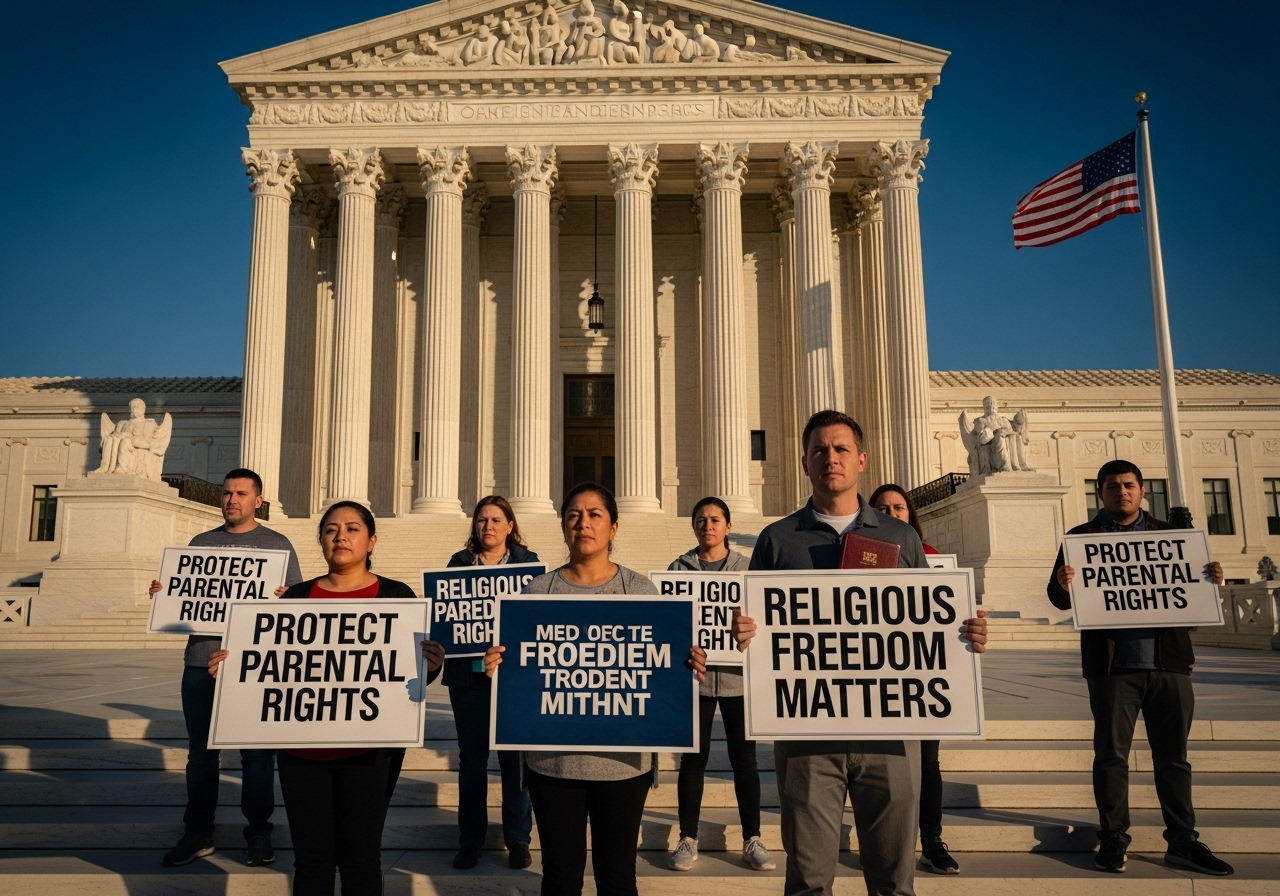It’s no secret to any parent or teacher that America’s schools are facing a crisis of distraction and declining academic standards. Step into any classroom across the country and you’ll likely find students glued to their smartphones, minds wandering, their futures slipping away one TikTok video at a time. But finally, after years of denial and complacency, states are stepping up to reclaim our schools—and the futures of our children—from the grip of digital distraction.
A new wave of legislation is sweeping through America, a movement led by conservative governors determined to restore order, discipline, and true learning in classrooms. Florida Governor Ron DeSantis sparked this firestorm in 2023 with House Bill 379, boldly taking a stand against the epidemic of cell phone addiction in schools. This groundbreaking move inspired other conservative states—and even some blue states—to follow suit. Today, fourteen states have enacted laws or executive orders restricting phone use during school hours. Alabama, Georgia, Indiana, Kentucky, Louisiana, New York, North Dakota, Oklahoma, South Carolina, Tennessee, Utah, Virginia, West Virginia, and Florida have all joined the charge.
In Virginia, Governor Glenn Youngkin made headlines with his decisive action, mandating that classrooms become cell phone-free zones. Youngkin stated clearly, “School should be a place of learning and interaction—free from cellphone and social media distractions.” This policy isn’t just about academic focus; it’s about re-establishing real human connections, social skills, and mental health among our youth.
Arkansas Governor Sarah Huckabee Sanders agrees wholeheartedly, urging even stronger measures. Sanders declared firmly, “Unrestricted smartphone and social media access is causing a rise in youth mental illness. After successful pilots, it’s time for a statewide ban.” Sanders is not alone—other states, including Pennsylvania, Delaware, and Arkansas, currently encourage schools to limit phone usage with lockable pouches during instructional hours, but Arkansas may soon adopt Sanders’ proposal for a full-fledged statewide ban.
Educators overwhelmingly support this conservative approach. According to a Pew Research Center poll conducted in June 2024, a staggering 72% of high school teachers identified cell phones as a major distraction harming student performance. Teachers recognize what many liberal bureaucrats refuse to accept: that teenagers’ near-constant phone usage undermines the educational mission of schools and contributes directly to declining test scores, poor mental health, and social isolation.
The critics argue that cell phone bans could limit students’ ability to contact family in emergencies or that schools should instead teach students responsible phone use. Dr. Isha Metzger of Georgia State University says, “While phones can distract, they also connect and support. A balanced approach promoting healthy device habits can foster positive environments.” But conservative policymakers understand that “balance” in this context often translates into weak compromises that fail to address real problems.
Andrea Lovanhill, CEO of the non-profit Committee for Children, suggests, “Phones present both opportunities and risks. They can engage students or divert attention. It’s about finding the balance.” Yet, America has experienced the “balanced” approach for over a decade, and the results speak volumes: plummeting academic scores, rising mental health crises, and unprecedented social isolation among our young people.
The uncomfortable truth is that teaching responsible use simply hasn’t worked. America tried this liberal, hands-off experiment, and our children have paid the price. It’s time we ended this failed approach and reinstated discipline and focus to our classrooms. Schools are not social media clubs or gaming cafes; they are environments meant to build knowledge, character, and citizenship.
As the new academic year begins this August and September, the question remains: Will more states follow the lead of bold conservative governors like DeSantis, Youngkin, and Sanders, or will they remain trapped in liberal inertia?
The movement to ban phones in schools represents far more than just classroom discipline. It symbolizes a renewed commitment to traditional values and common-sense governance. Conservative leadership has taken the first crucial steps toward reclaiming our children’s education and mental health from the digital abyss. It’s now up to parents and communities across America to demand that every governor, legislator, and school board member follow suit, placing America’s children first once again.





